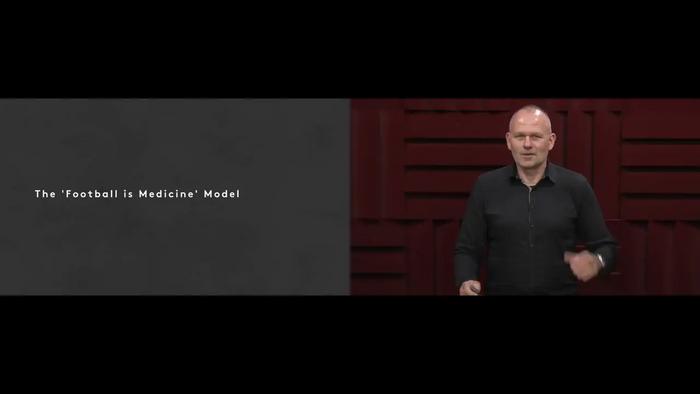Football as Medicine: Transforming Global Health Through Play
In an impressive breakthrough, Danish researchers, alongside the Danish Football Association, have produced a White Paper that presents compelling evidence for the role of football in preventing and treating lifestyle-related diseases. Titled “Football as Prevention and Treatment – A White Paper Focusing on 10 Non-Communicable Diseases and Risk Factors,” this document compiles over two decades of research and practical application of recreational football training, not only in Denmark but also across several other countries. The researchers emphasize how the sport can profoundly influence public health and wellbeing, illustrating a new paradigm in health promotion.
The crux of the argument lies in recognizing football as a hybrid training model that seamlessly integrates endurance, high-intensity interval, and strength training. Through this multifaceted approach, football emerges as an optimal means to improve overall fitness, with evidence suggesting that structured football sessions can be as effective as pharmacological treatments in managing various health conditions. This is particularly noteworthy given the dramatic rise in non-communicable diseases, such as hypertension and type 2 diabetes linked to sedentary lifestyles.
Professor Peter Krustrup, a leading researcher in the field, asserts that football training not only enhances aerobic fitness but also fortifies cardiovascular health. His research demonstrates that participating in just two one-hour football training sessions per week can lead to significant improvements in health metrics, including lower blood pressure and enhanced musculoskeletal fitness. This reinforces the notion that engaging in recreational football is not merely a pastime but a substantial contributor to improved health outcomes.
The White Paper showcases detailed findings from 25 researchers at 12 different institutions, bringing to light the range of lifestyle diseases that can be positively impacted through football training. These conditions include high blood pressure, type 2 diabetes, cardiovascular diseases, osteoporosis, and several other obesity-related disorders. The multi-dimensional benefits of football extend beyond mere physical health, incorporating mental health advantages that further highlight its value as a tool for overall well-being.
Central to the discourse surrounding football as a health intervention is the concept of scalability. The Danish Football Association has proactively invested in various projects that harness recreational football as a health-promoting activity. Initiatives like “Football Fitness” and “FC Prostate” aim to tackle specific public health issues, such as cardiovascular diseases and the rehabilitation of prostate cancer patients, respectively. This level of organization suggests an acknowledgment from health authorities of football’s ability to address global health challenges effectively.
One particularly striking study focused on prostate cancer patients highlights the tangible benefits of incorporating football into treatment plans. Participants who engaged in football training for a year experienced a staggering 40% reduction in hospital admissions compared to their physically inactive counterparts. This finding illustrates football’s potential not just as a sport, but as an essential component of modern health intervention strategies.
Moreover, the researchers present football training as a playful and social activity that transcends technical skills or prior experience. This aspect underscores the inclusive nature of the sport, making it accessible to diverse groups, including the elderly, the untrained, and those recovering from health challenges. Such inclusion is vital in promoting lifelong engagement in physical activity, combating the decline in fitness often seen with age or sedentary behavior.
The model proposed in the White Paper, “Football is Medicine,” encapsulates the spirit of this initiative. Launched in 2018, this holistic framework not only delineates the health benefits of football but also serves as a rallying call to embrace physical activity as a fundamental aspect of treatment. The slogan, “Football is Medicine – it is time for patients to play!” epitomizes the researchers’ vision of an active lifestyle as a crucial prescription for managing and preventing disease.
In light of these findings, calls for healthcare systems to prescribe football as an adjunct therapy grow stronger. The implications of this research are broad, suggesting that football could be leveraged as a method of preventative healthcare, rehabilitation, and even addressing mental health challenges. This shift represents a significant reevaluation of how healthcare providers view physical activity—moving beyond mere recommendations to integrate sports into treatment paradigms actively.
As researchers continue to explore football’s utility in combating various health issues, there is a consensus that recreational football can serve as a blueprint for innovative health promotion strategies. By distilling years of practical experience and scholarly research into actionable insights, the White Paper positions itself as a vital resource for policymakers, healthcare practitioners, and sports organizations around the globe.
In conclusion, the findings highlighted in the White Paper underscore a pressing need to redefine our approach to health and wellness through recreational football. Their evidence-based approach demonstrates that physical activity can no longer be seen as an optional aspect of treatment but must be considered integral to public health frameworks. With the enthusiasm surrounding the potential for football to revolutionize health promotion, the future looks promising for integrating sport and health in a holistic manner.
Subject of Research: Football as a method for the prevention and treatment of lifestyle-related diseases.
Article Title: Football as Medicine: Transforming Global Health Through Play
News Publication Date: 2024
Web References: University of Southern Denmark
References: Bennike S., Andersen TR., Krustrup P. (2024). Football as Prevention and Treatment – A White Paper Focusing on 10 Non-Communicable Diseases and Risk Factors.
Image Credits: Karsen Prinds, University of Southern Denmark
Keywords: Football, Health Promotion, Non-Communicable Diseases, Rehabilitation, Physical Activity, Preventative Healthcare
Tags: cardiovascular health improvementDanish Football Association ResearchFootball and Lifestyle DiseasesFootball as MedicineFootball Fitness BenefitsFootball for Public WellbeingGlobal Health RevolutionHealth Promotion Through SportsHybrid Training ModelsNon-Communicable Diseases PreventionRecreational Football TrainingStructured Football Sessions





